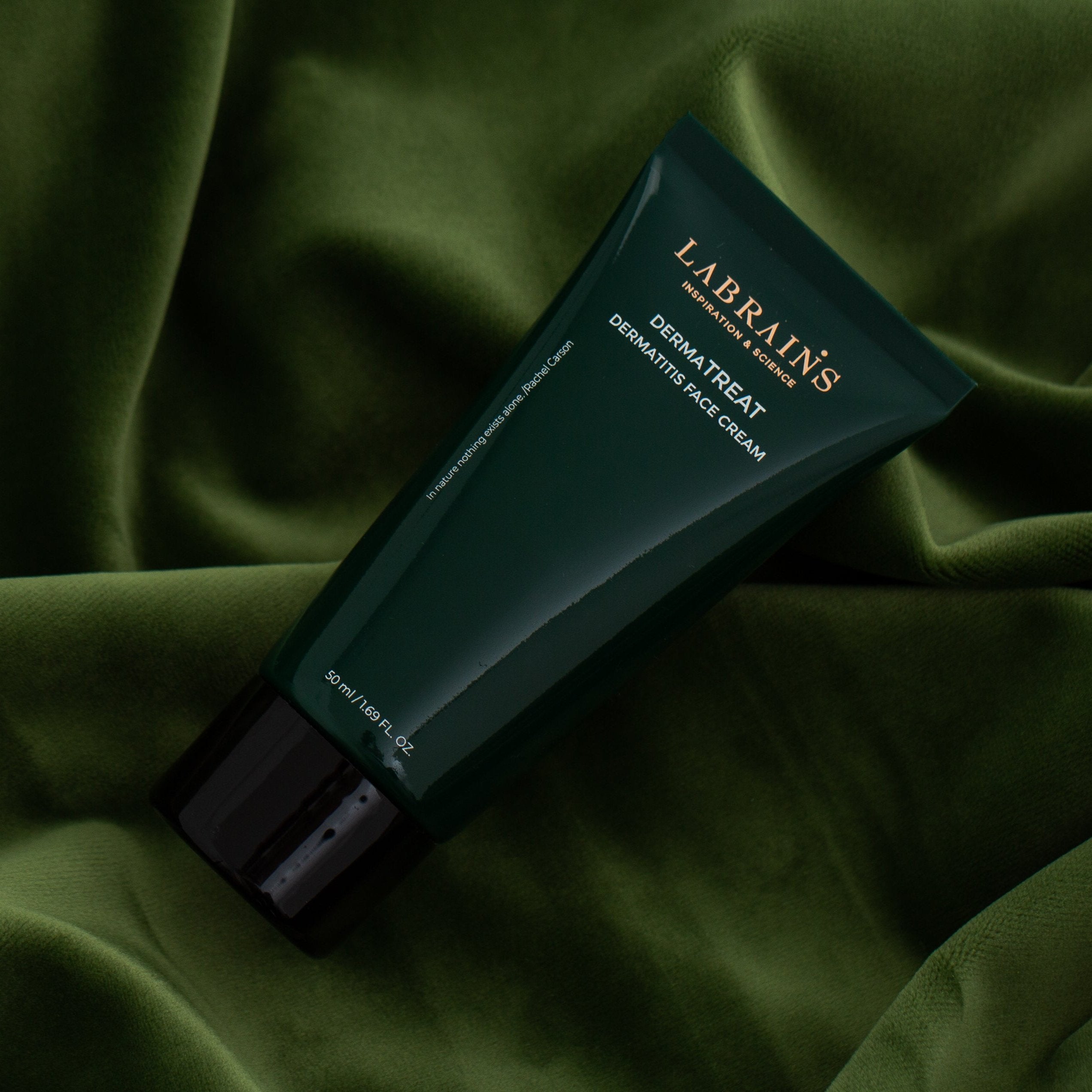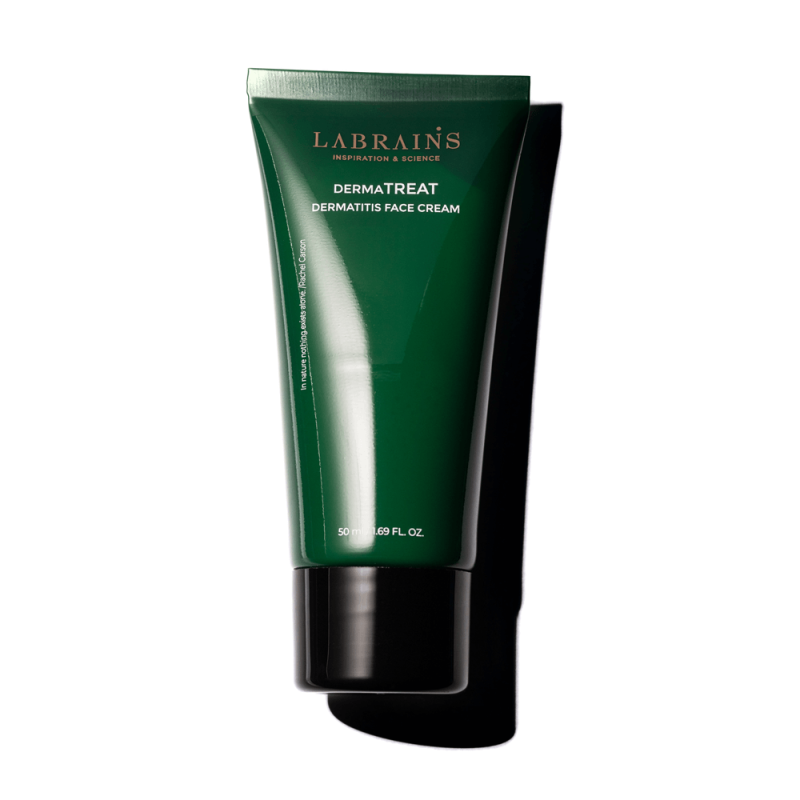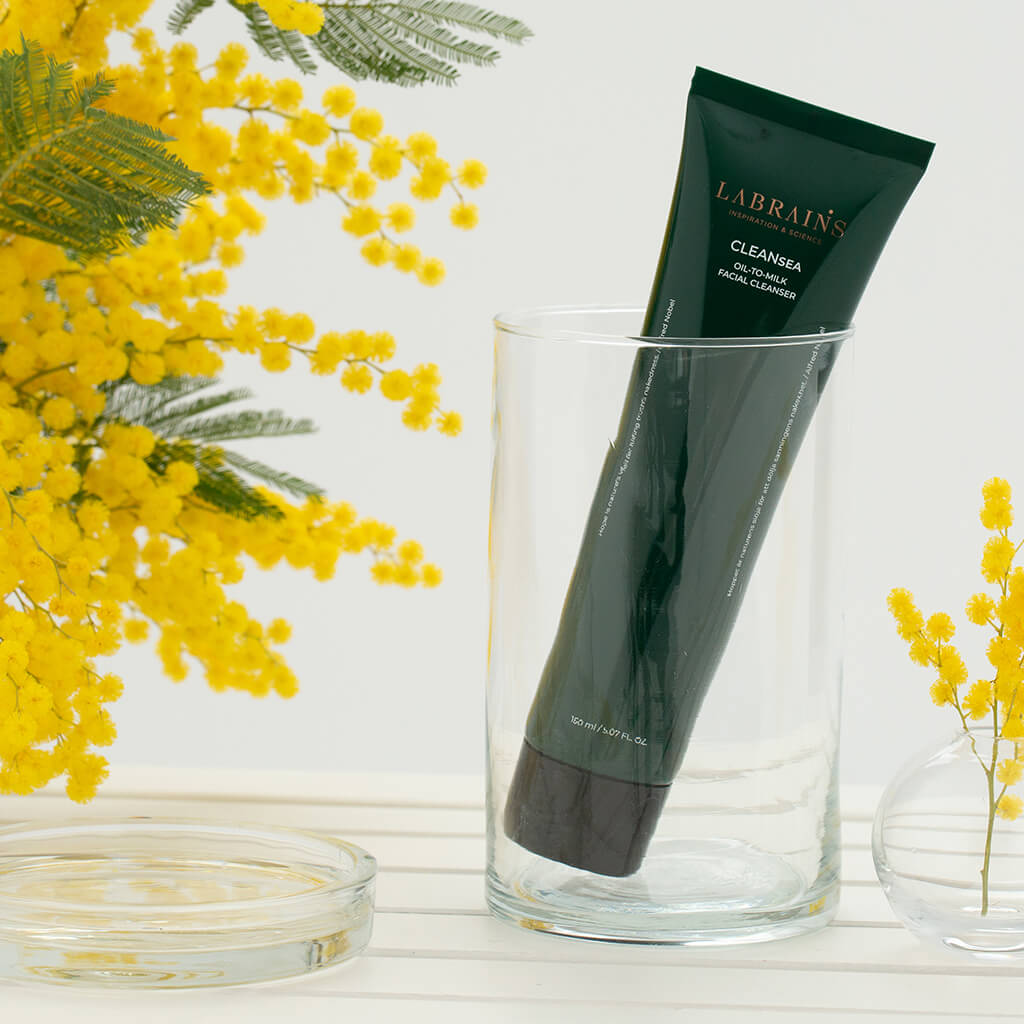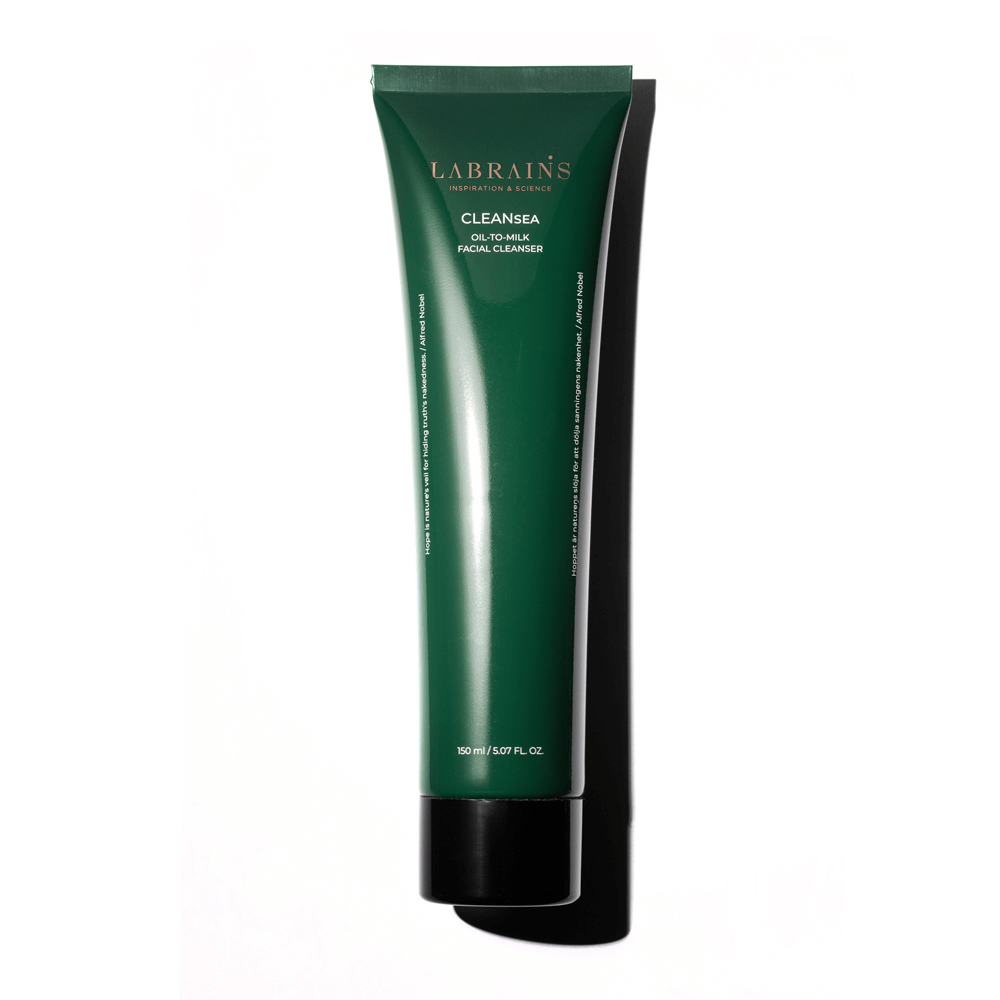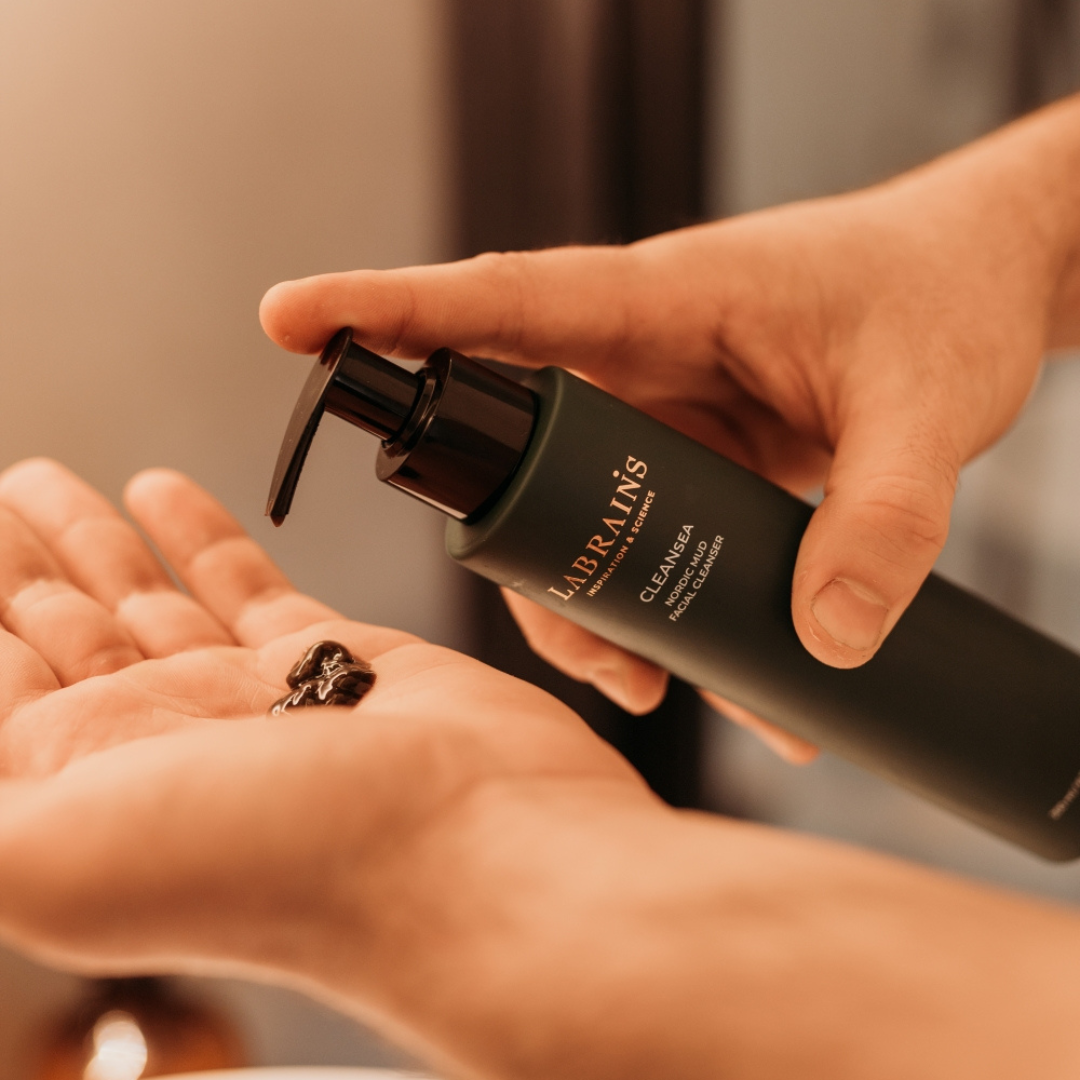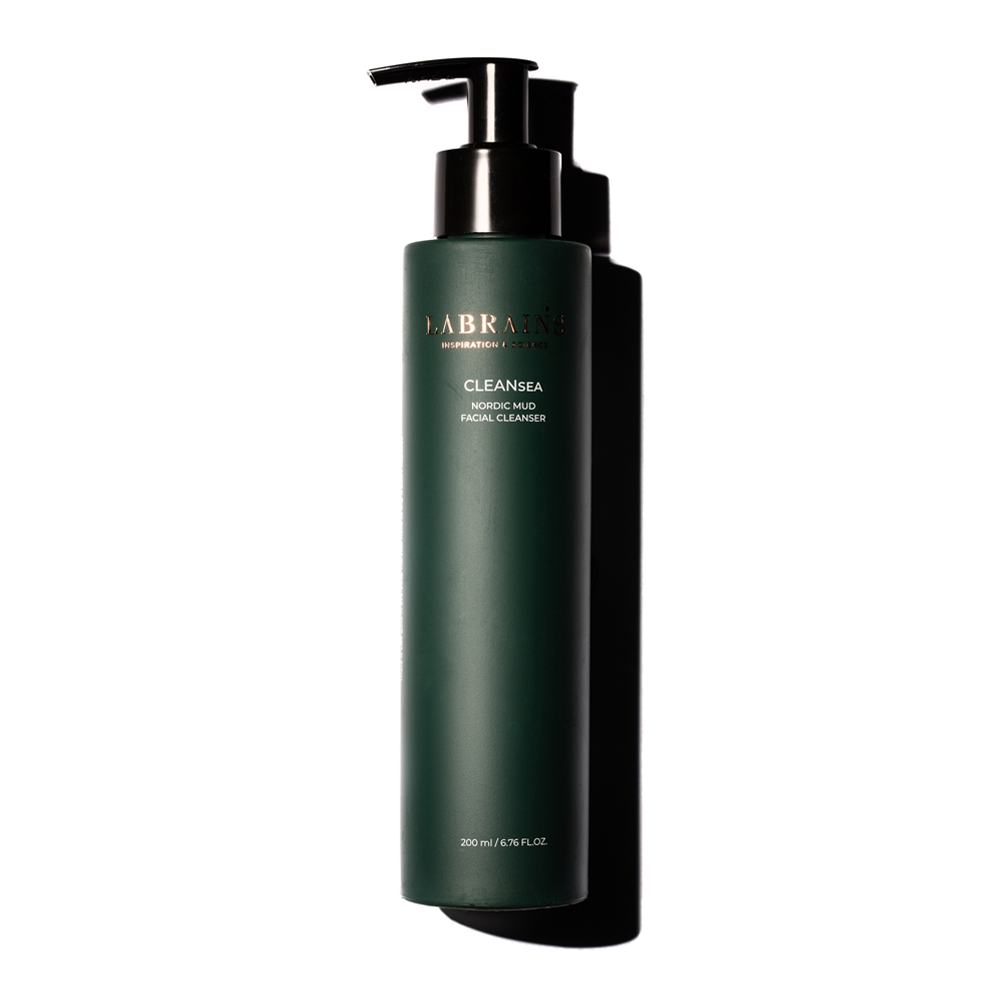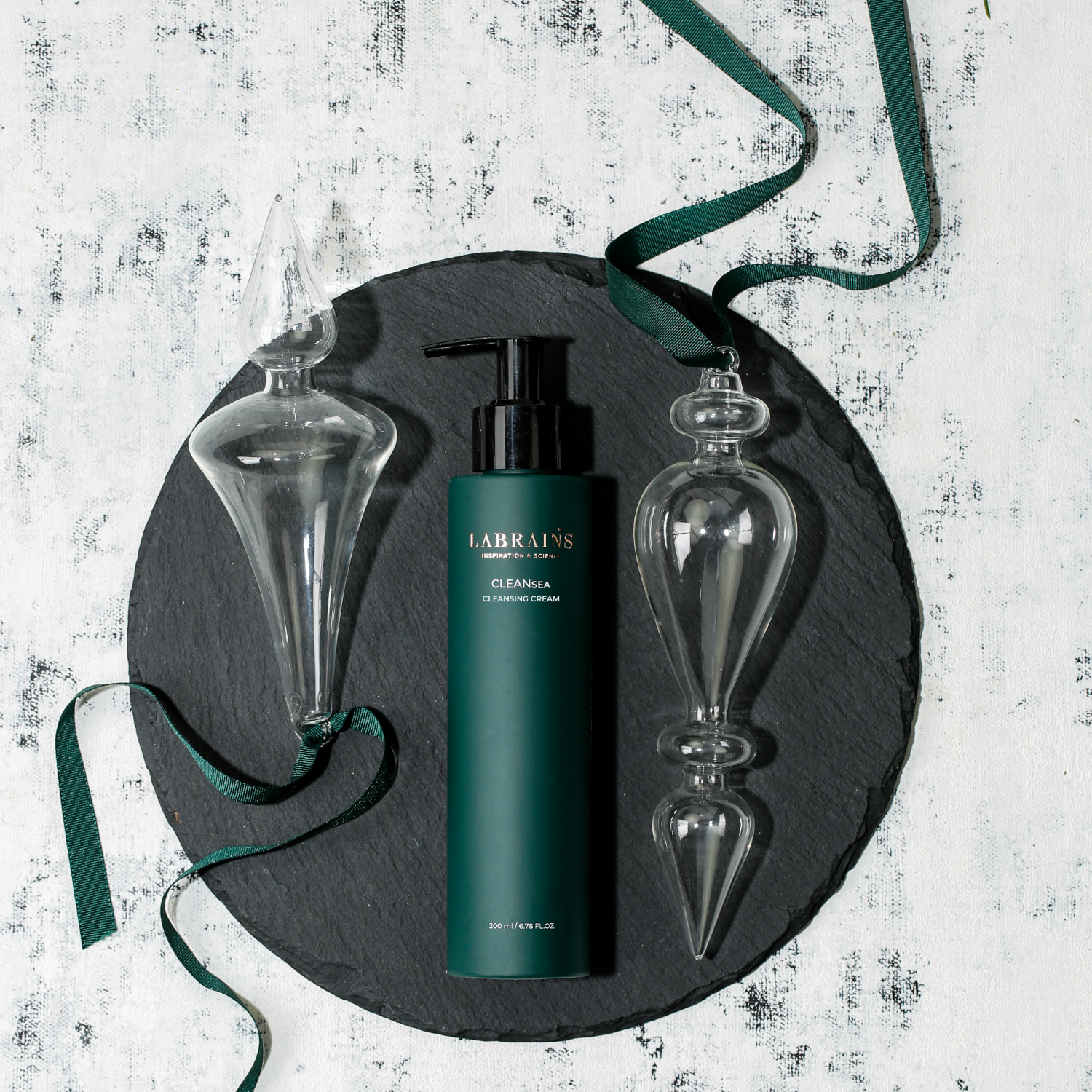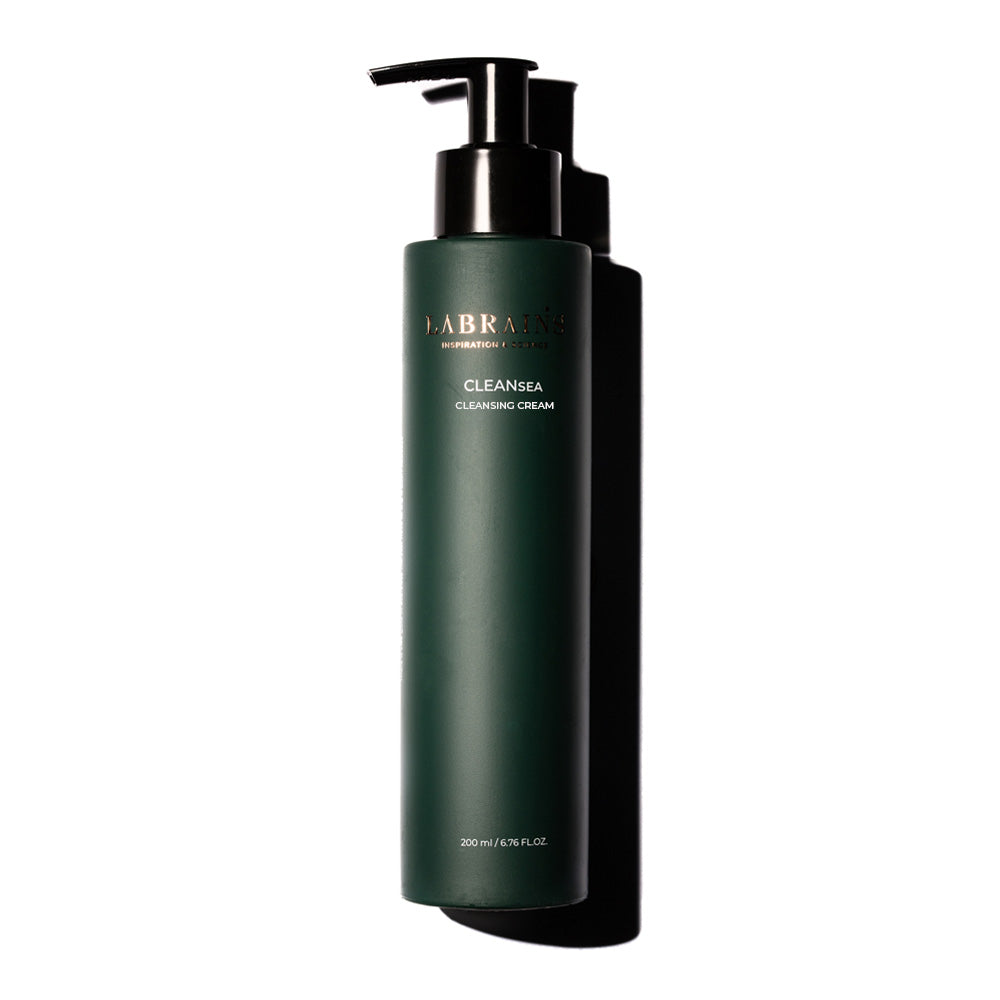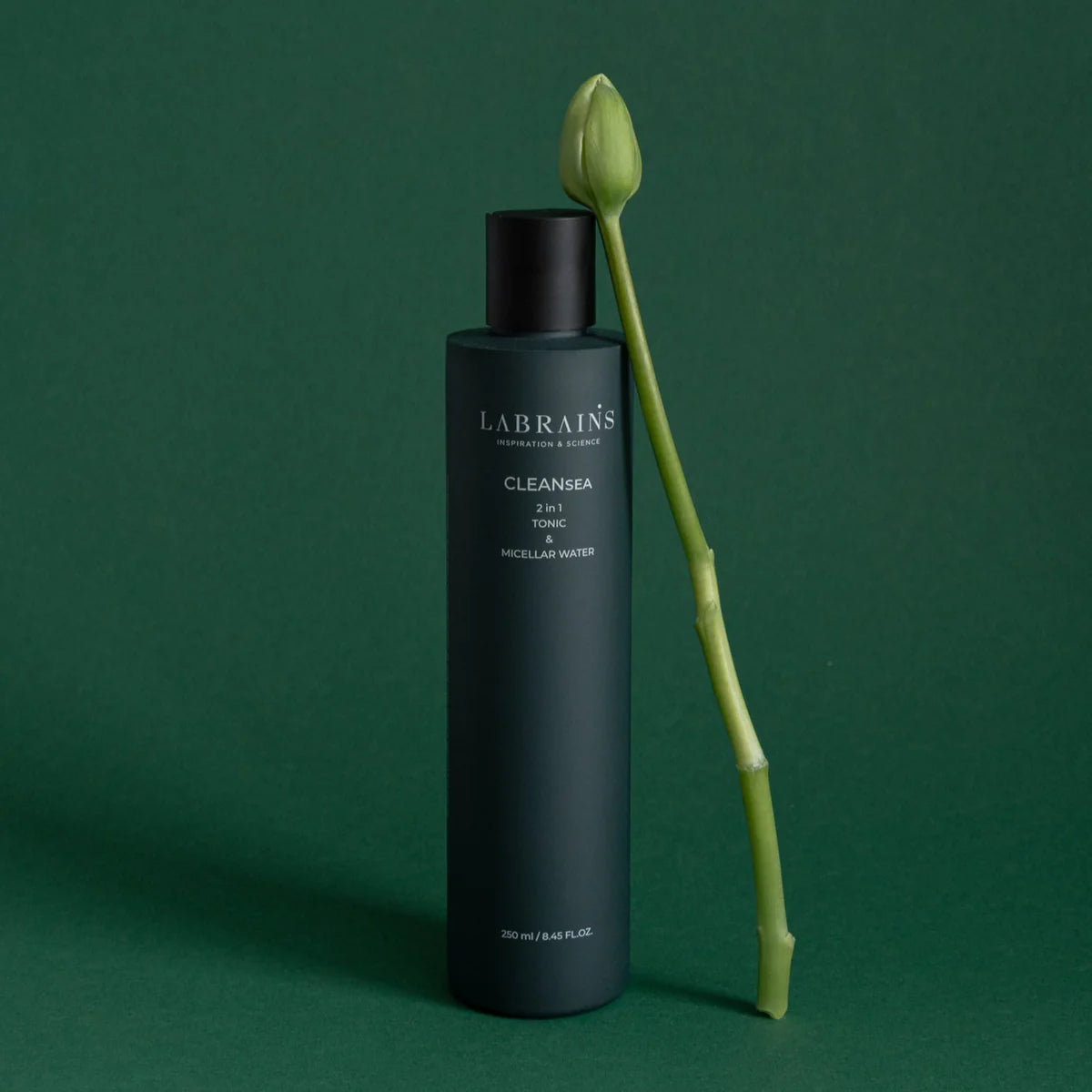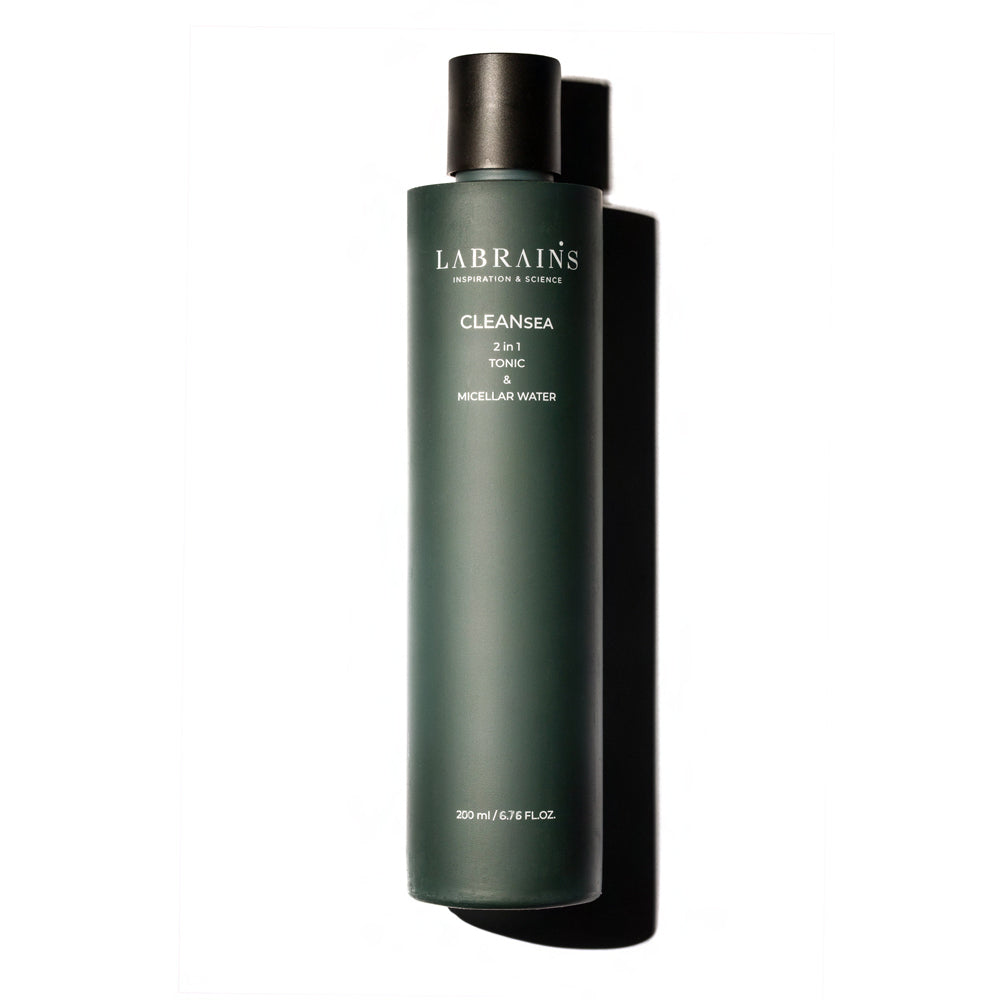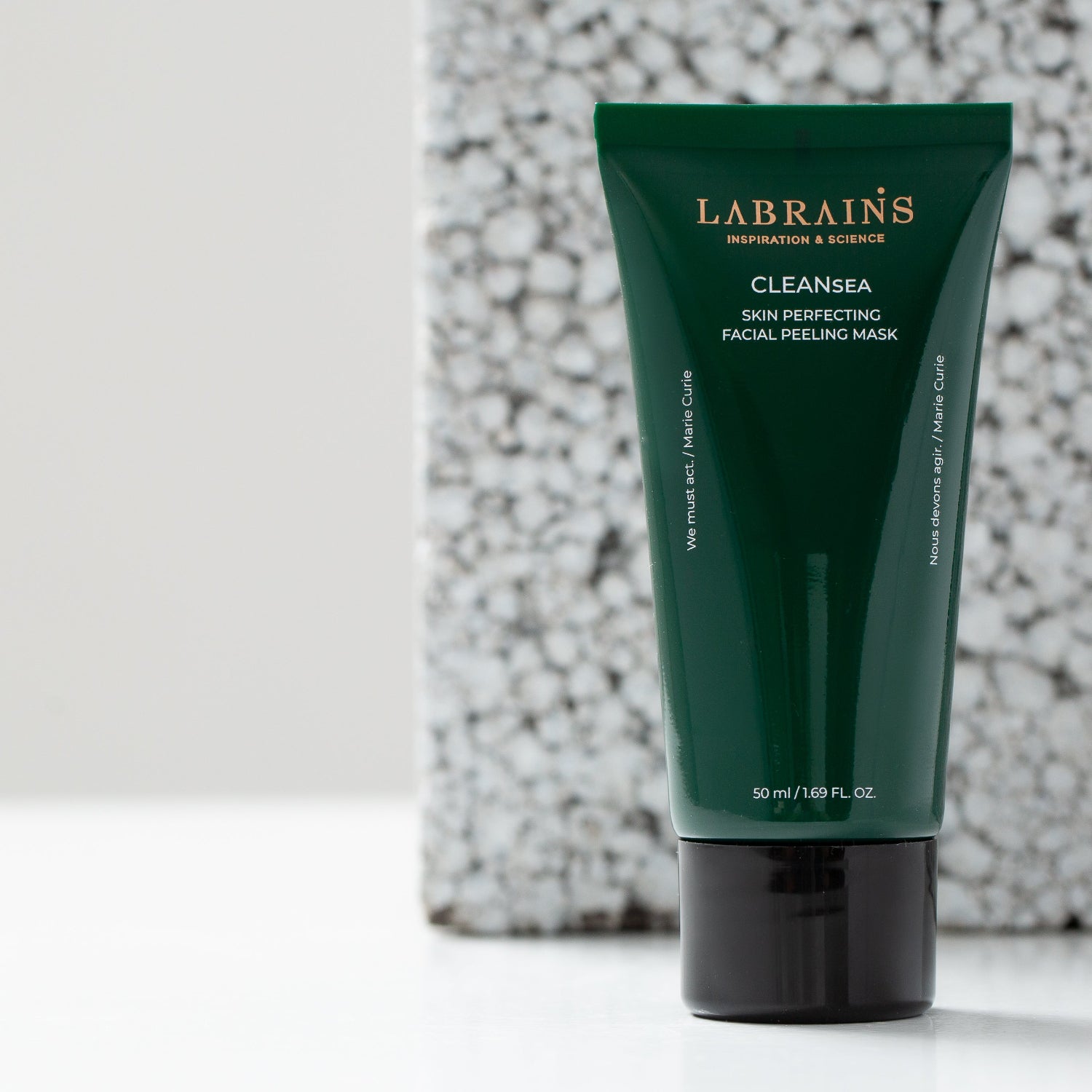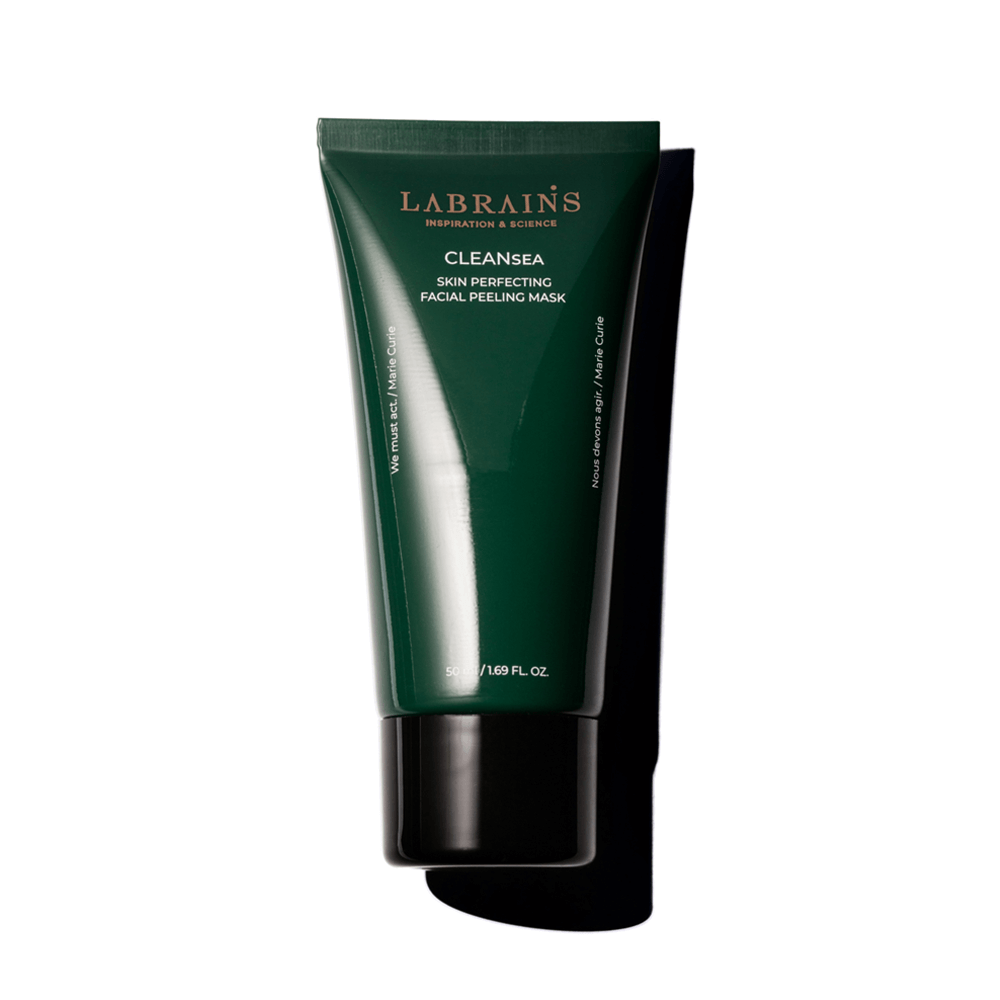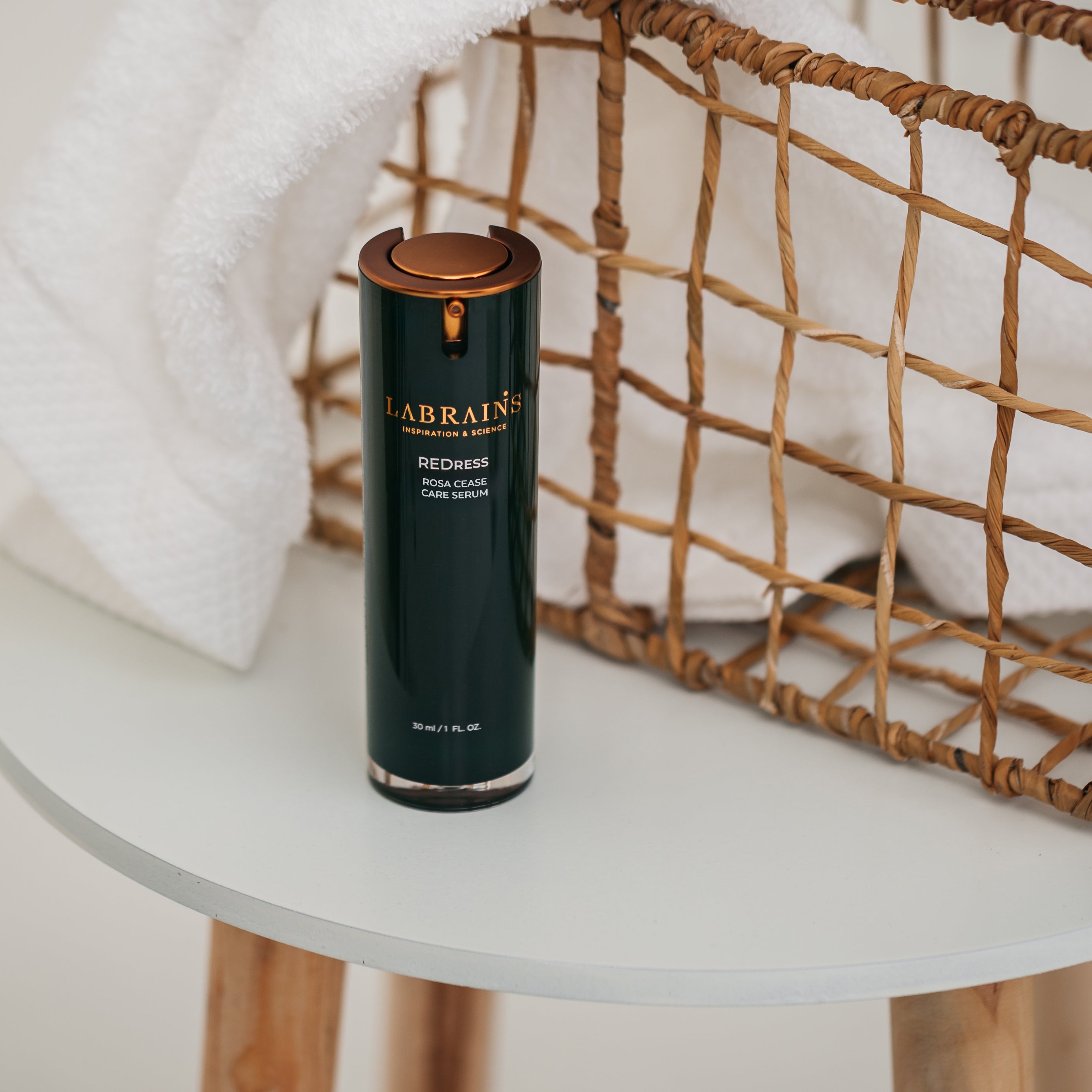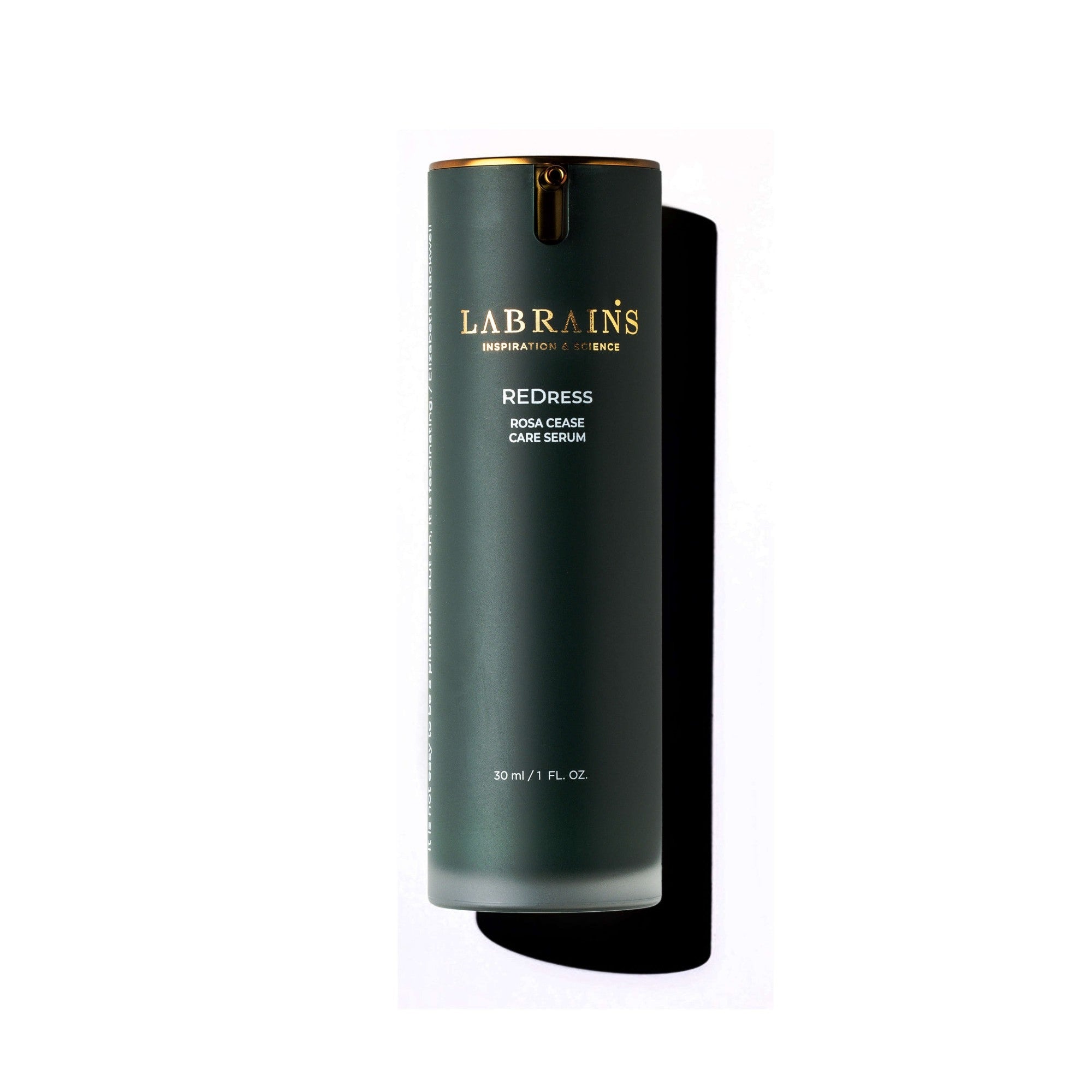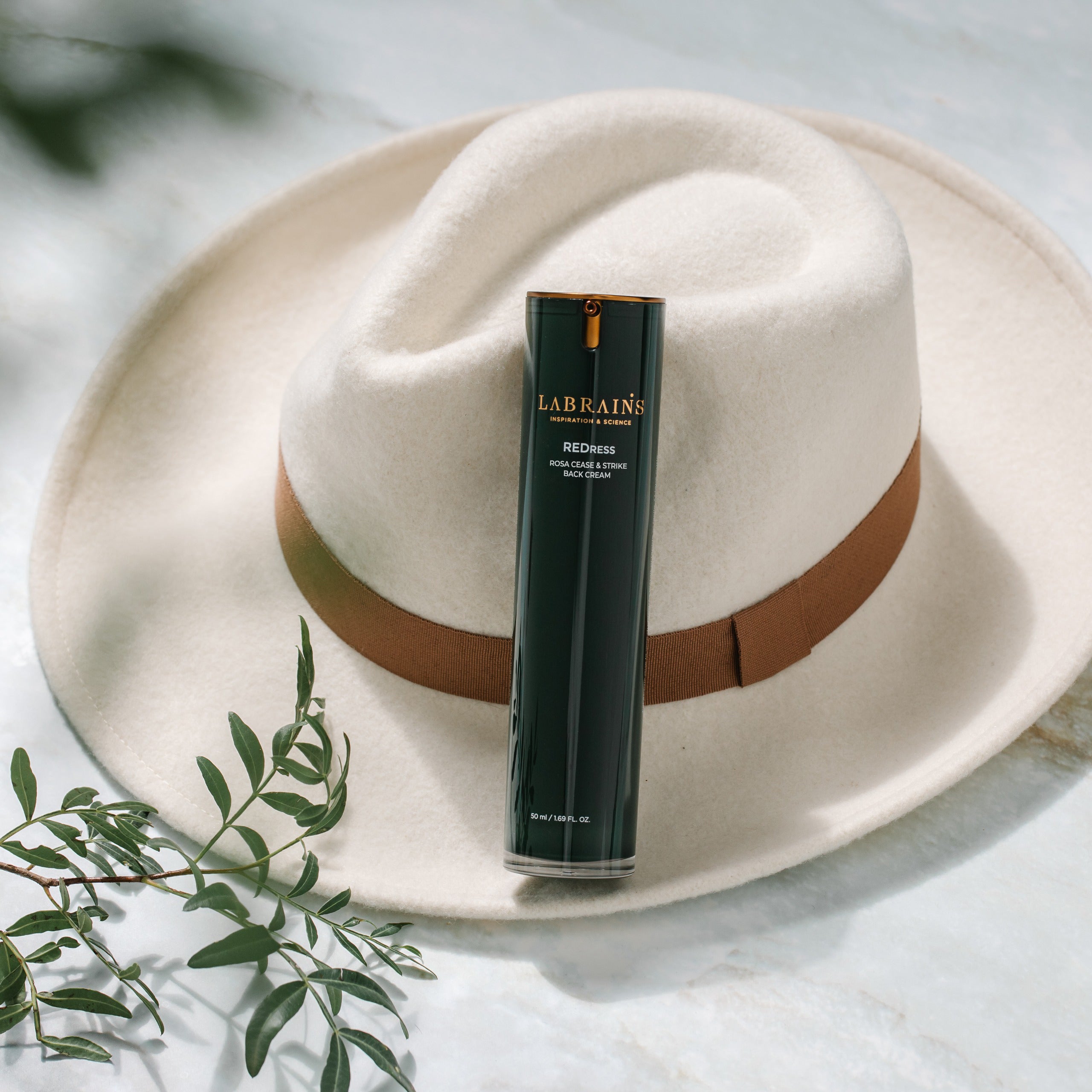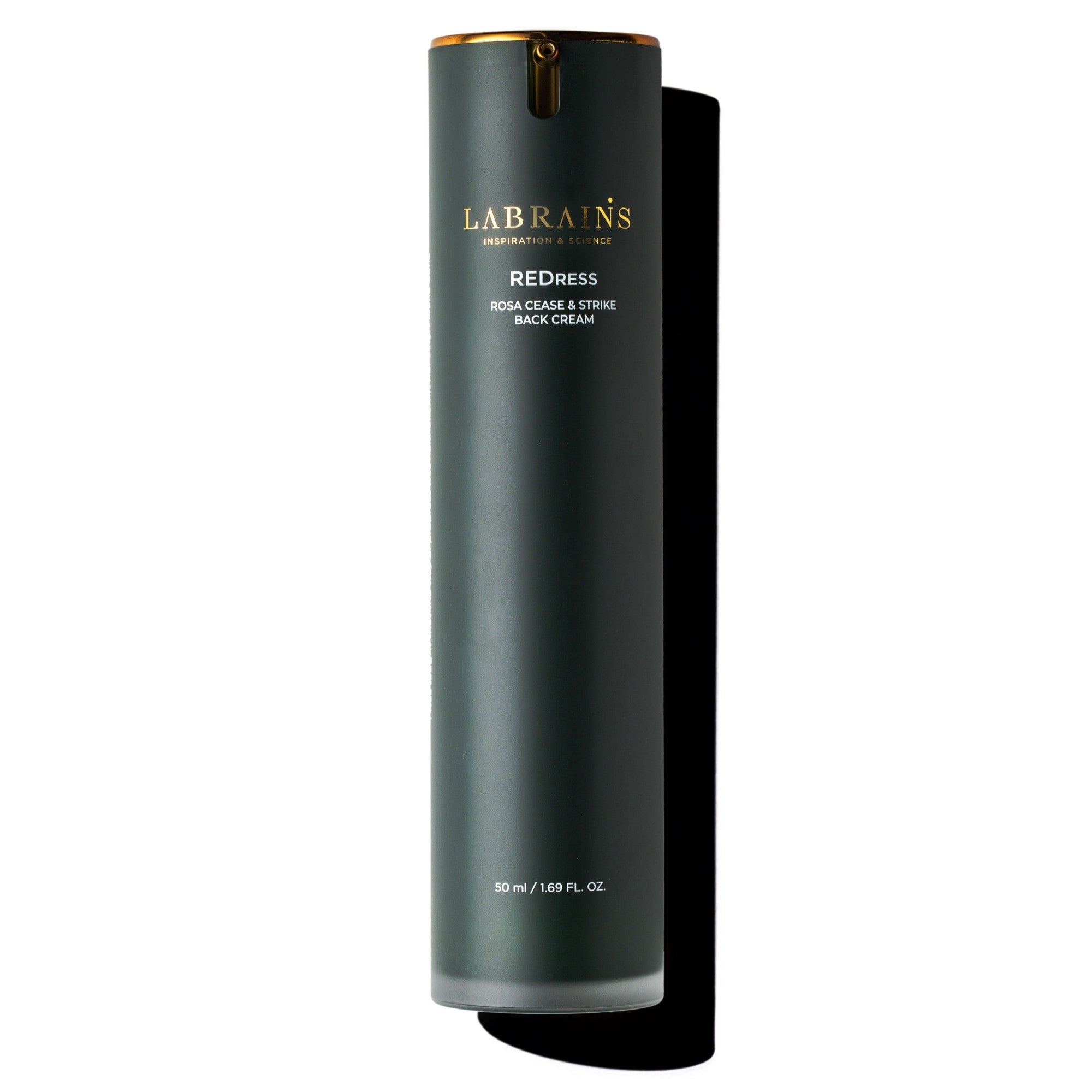Sensitive Skin in the Urban World: More Than Just a Feeling
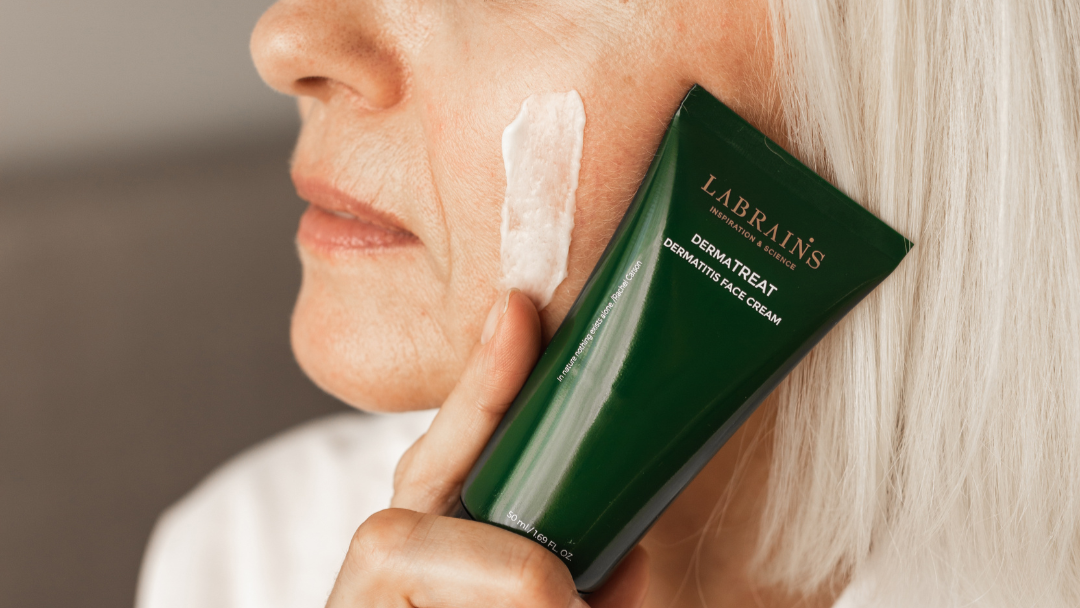
By Dr. oec. Liga Brunina, Biochemist and Founder of LABRAINS
In today’s fast-paced, urban world, the term “sensitive skin” is more than just a buzzword - it’s a rising reality. But what does “sensitive” actually mean? Is it a diagnosis? A passing reaction? Or a sign that our skin is quietly overwhelmed?
As both a biochemist and skincare formulator, I can assure you: skin sensitivity is not just about what you feel. It’s what your skin is fighting against beneath the surface. Inflammation, pollution, internal stress, and a compromised barrier system all play their part. Understanding this complexity is the first step to choosing skincare that actually works - especially in modern cities where nearly everyone is now living with some degree of subclinical inflammation.
WHAT IS SENSITIVE SKIN - SCIENTIFICALLY SPEAKING?
Sensitive skin refers to a lower tolerance to environmental and internal triggers, including:
- Weather extremes: Heat, humidity, cold wind, or AC-conditioned premises can cause skin sensitivity, especially in regions like the UAE
- Skincare products: Harsh chemicals, strong fragrances, allergens, preservatives, solvents or exfoliants may provoke reactions in sensitive skin
- Pollution: Dust and air pollutants, as well as contaminated water can irritate the skin further, particularly in urban environments
- Lifestyle habits: Poor hydration, stress, or shaving can aggravate sensitivity
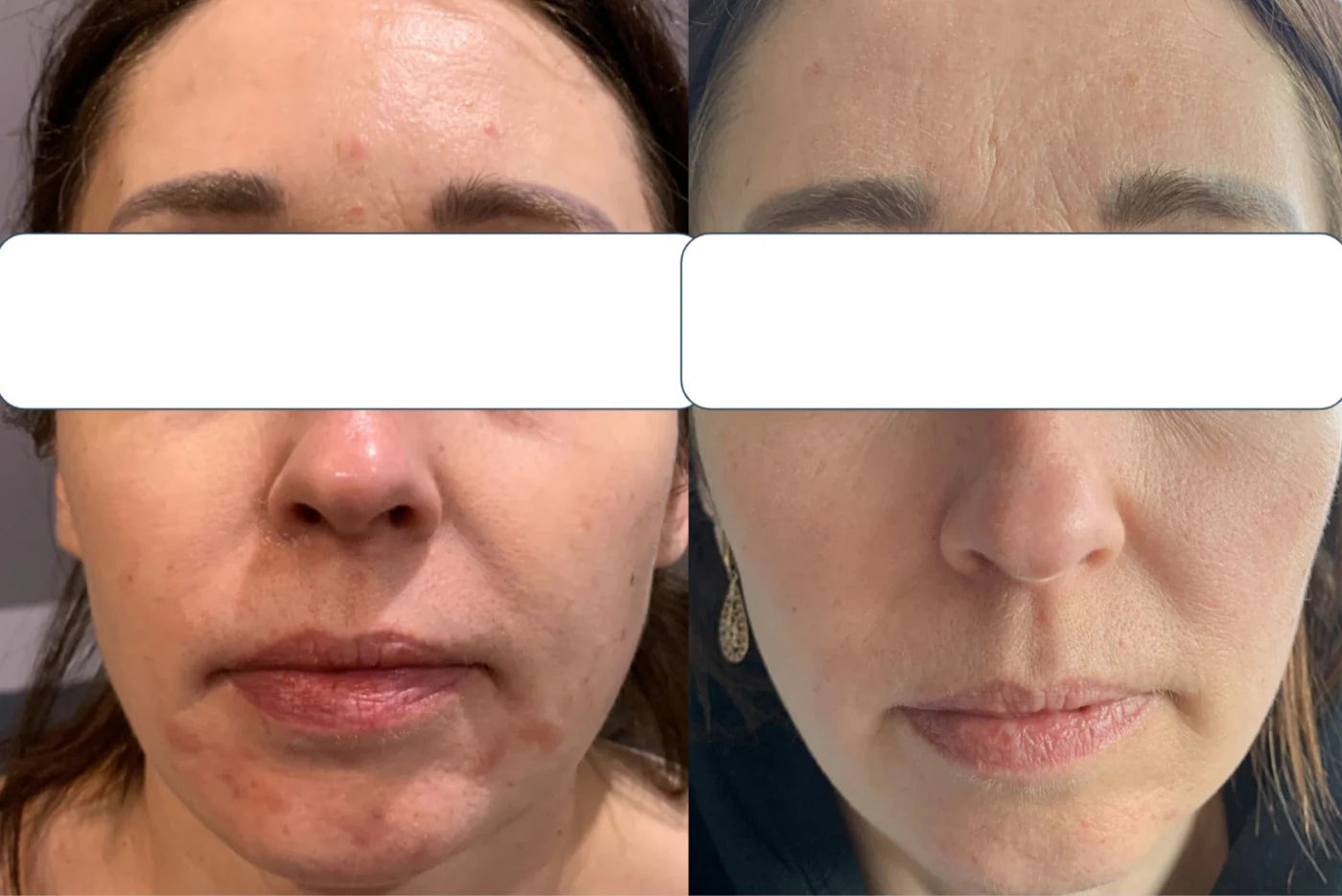
Unlike allergy, which involves the immune system overreacting to a specific allergen, sensitive skin involves a compromised skin barrier and overactive nerve endings, which respond with burning, stinging, redness, tightness, or visible inflammation.
This reactivity is often tied to a persistent, low-grade inflammation that disrupts the skin’s ecosystem - called inflammaging. Managing sensitive skin often involves a gentle skincare routine, hydration, and avoiding known triggers. LABRAINS tests confirm that using natural, allergen and irritant free skincare and procedures helps strengthen the skin’s own protective mechanisms, reducing sensitivity over time.
UNMET NEED: CAN IT BE THAT PEOPLE DON’T EVEN REALISE THEY HAVE SENSITIVE SKIN?
Many people might not realize they have sensitive skin because the symptoms can be mild or mistaken for normal reactions to external factors. For instance, if someone experiences redness, tightness, or irritation after using a product, after gym or being exposed to the weather, they might assume it's temporary rather than a sign of sensitivity. Similarly, people might attribute flare-ups to general stress or poor sleep rather than recognizing their skin's heightened reactivity.
Additionally, sensitive skin doesn't always manifest in dramatic ways. It can show up as subtle dryness, mild itching, or a feeling of discomfort that many might dismiss as "normal." Since skincare isn't always openly discussed, especially in certain cultures or social groups, there's less awareness about what constitutes sensitive skin and how to manage it.
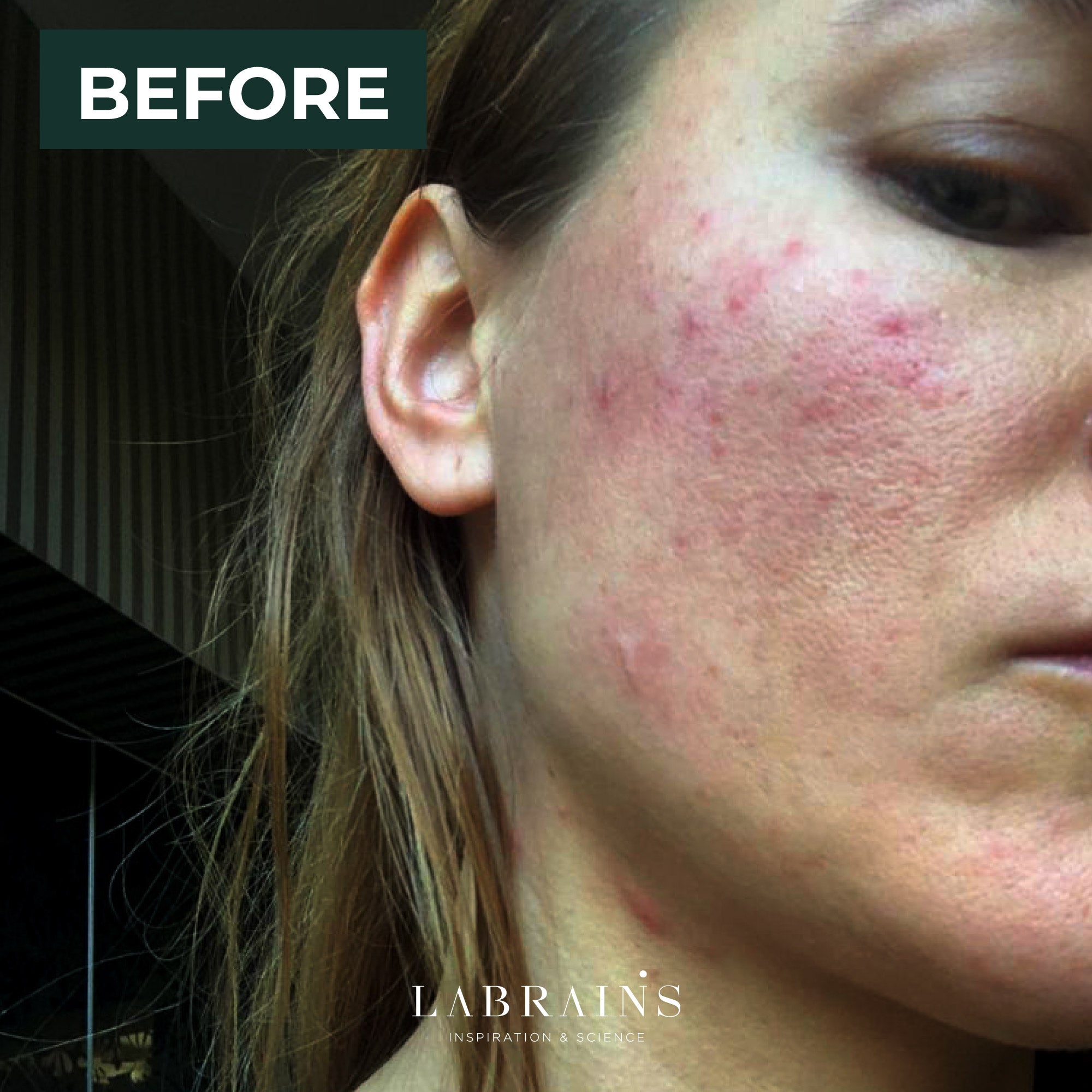
FROM SENSITIVITY TO CHRONIC CONDITIONS
Once the skin’s defense system is compromised, it becomes the perfect host for inflammation-driven disorders like:
Rosacea: Triggered by temperature, stress, or spicy food, rosacea is linked to vascular hyper-reactivity and a disturbed immune response, common in sensitive urban skin.
Acne: Environmental toxins increase sebum oxidation and bacterial imbalance, fueling inflammation and clogging pores - especially when paired with comedogenic or overly aggressive skincare.
Atopic and Contact Dermatitis: Pollution and synthetic skincare ingredients (like sulfates, fragrances, and preservatives) can act as pro-inflammatory agents, worsening dermatitis flare-ups or creating new sensitivities.
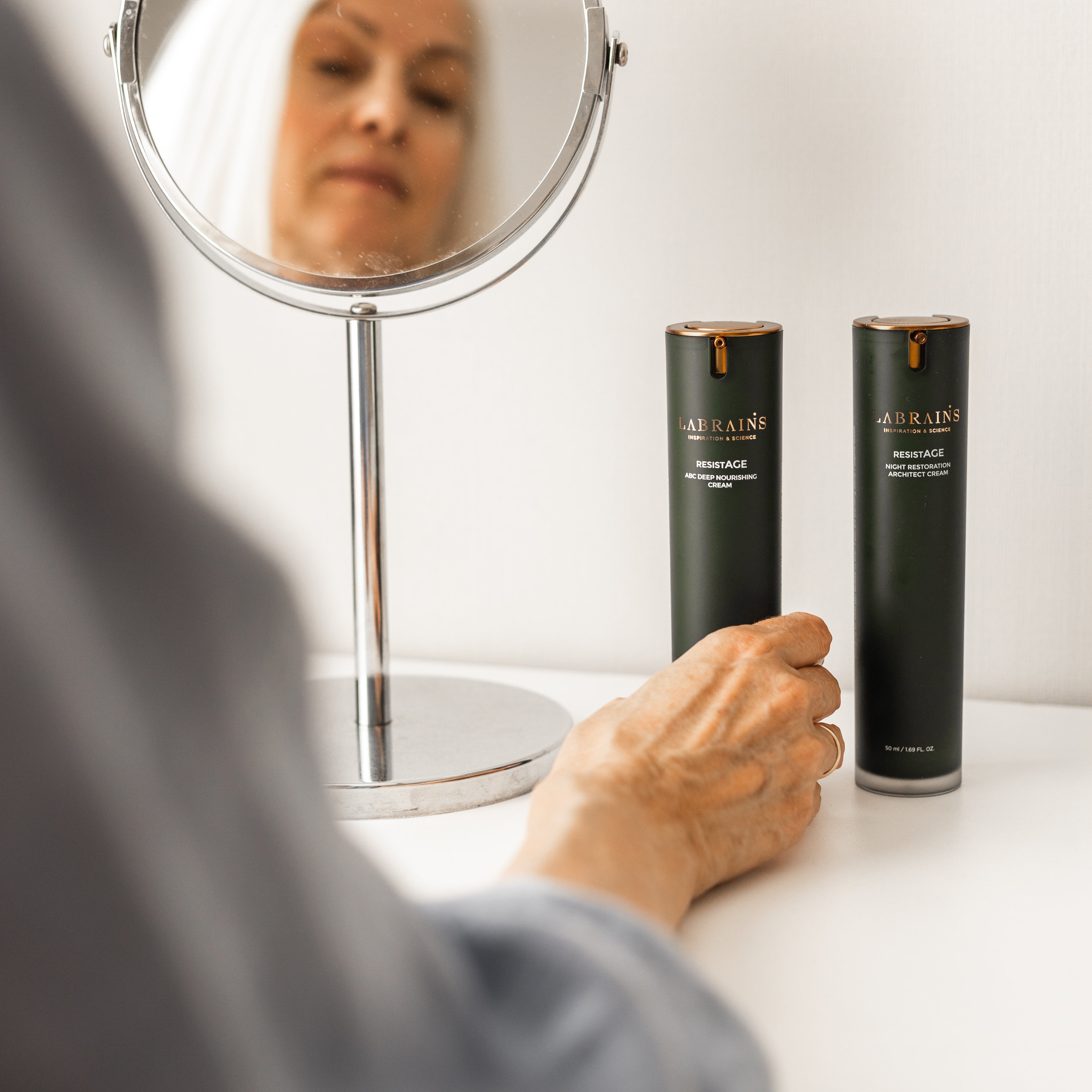
Sensitive Skin Ages Faster - Here’s Why
Sensitive or inflamed skin doesn’t just feel uncomfortable. It actually ages more rapidly.
Why? Because chronic inflammation (even invisible) triggers:
- Breakdown of collagen and elastin,
- Impaired cell turnover,
- Poor skin regeneration and barrier repair,
- Pigmentation disorders.
This process, called inflammaging, leads to premature fine lines, sagging, uneven tone, and loss of resilience - especially around the eyes, mouth, and cheekbones.
HOW TO REDUCE SENSITIVITY AND INCREASE SKIN’S OWN PROTECTION?
When it comes to sensitive skin, there’s no way to control factors like the weather - especially in a place like the UAE, where heat, humidity, and air conditioning are constants. But while the climate may be unavoidable, you can focus on building a holistic approach to long-term skin health. The goal isn’t just quick fixes for flare-ups, but sustainable routines that nurture your skin’s balance and resilience.
A holistic approach to sensitive skin and small, yet effective steps in long-term can help to:
- Reduce sensitivity
- Reduce negative environmental effects, inflammatory processes and pre-mature aging
- Prepare yourself for procedures that currently aren’t possible due to skin sensitivity (microneedling, etc.)
WHAT DOES HOLISTIC APPROACH TO SENSITIVE SKIN MEAN?
- Gentle Daily Skincare Routine: Choose mild, fragrance-free cleansers and moisturizers that prioritize hydration while protecting the skin barrier. No brushing. Avoid products with harsh chemicals or strong fragrances, or nonsense ingredients, like preservatives, solvents, etc. Clean skin correctly 2 times per day.
- Facial Procedures for Sensitive Skin: Incorporate gentle yet effective facials into your routine - preferably 6 times per two months. Look for facials designed for soothing irritation and improving skin texture, such as hydrating facials, enzyme treatments, or light exfoliation treatments suitable for sensitive skin types.
- Sun Protection: Make sunscreen an essential part of your daily routine, opting for mineral-based options. Shield your skin with hats or sunglasses during extended outdoor activities.
- Diet and Hydration: A balanced diet rich in antioxidants, such as fruits, vegetables, and nuts, can support skin health. Pair this with consistent hydration to combat dryness caused by air conditioning or heat.
- Stress Management: Sensitive skin often worsens under stress, so consider activities like mindfulness, yoga, light exercise or evening walks to help regulate stress levels and improve your overall well-being.
- Environmental Care: Use humidifiers in your home or workplace to maintain moisture in air-conditioned environments.
- Professional Guidance: Visit dermatologists or skincare specialists for tailored advice and treatments that align with your skin type.
By viewing skincare as part of a broader wellness practice, you can not only manage sensitive skin but also enhance your overall health and confidence. A gentle facial, paired with other holistic solutions, can work wonders for calming your skin and restoring its vitality.
LABRAINS SCIENCE: CALMING FROM THE INSIDE OUT
At LABRAINS, we combine neuroscience, microbiome technology, and barrier biology to create natural skincare products that not only soothe sensitivity, but also restore long-term skin health.
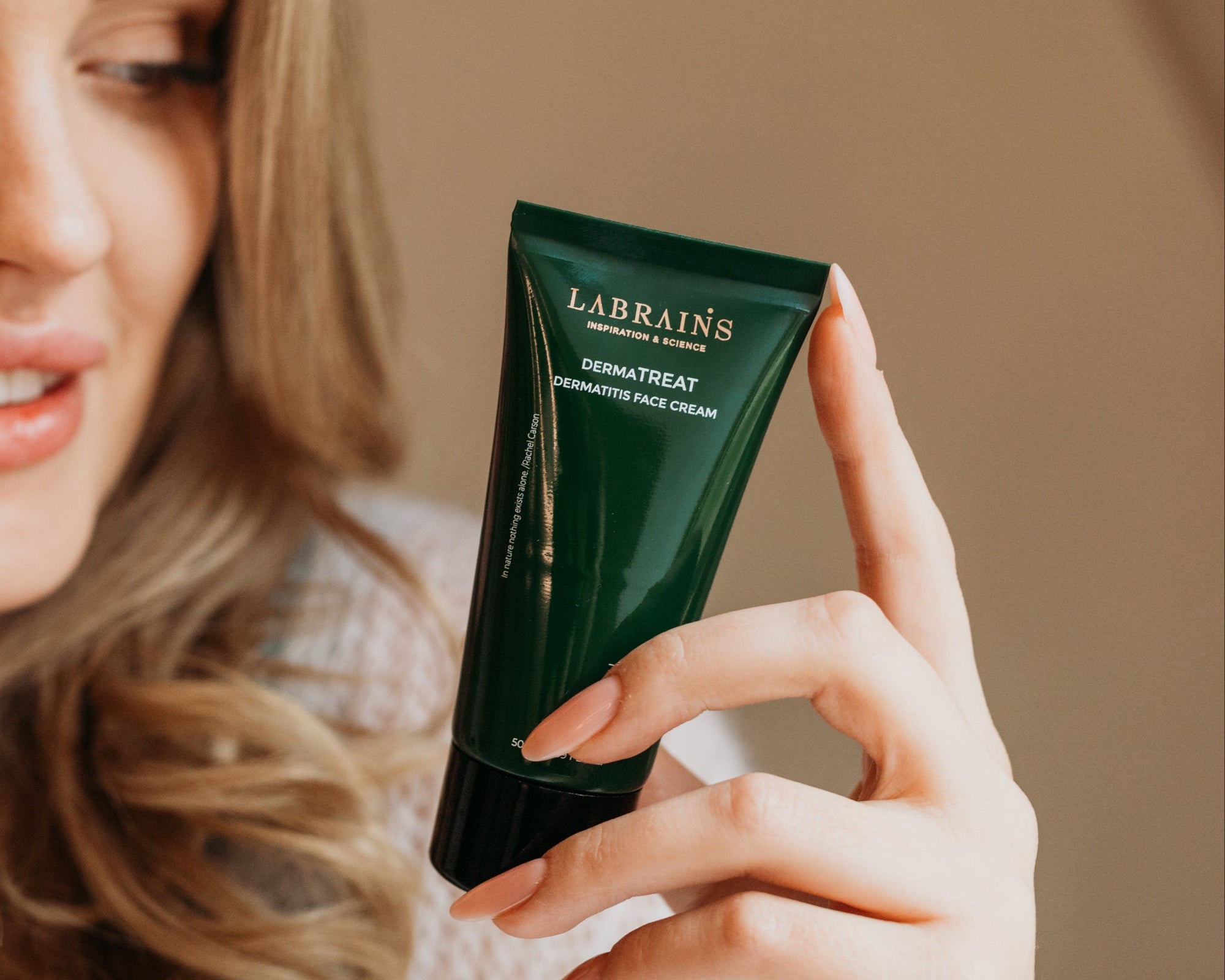
Here’s what sets our formulations apart:
- Biotech-derived actives that regulate inflammation and enhance skin tolerance,
- Biomimetic compositions which imitates our skin structure and restore its natural balance,
- pH-balanced, non-occlusive textures to protect without suffocating,
- 3-step sulfate-free cleansing systems to gently detox the skin without stripping it,
- Fragrance-free, silicone-free, and preservative-alternative systems to prevent further irritation.
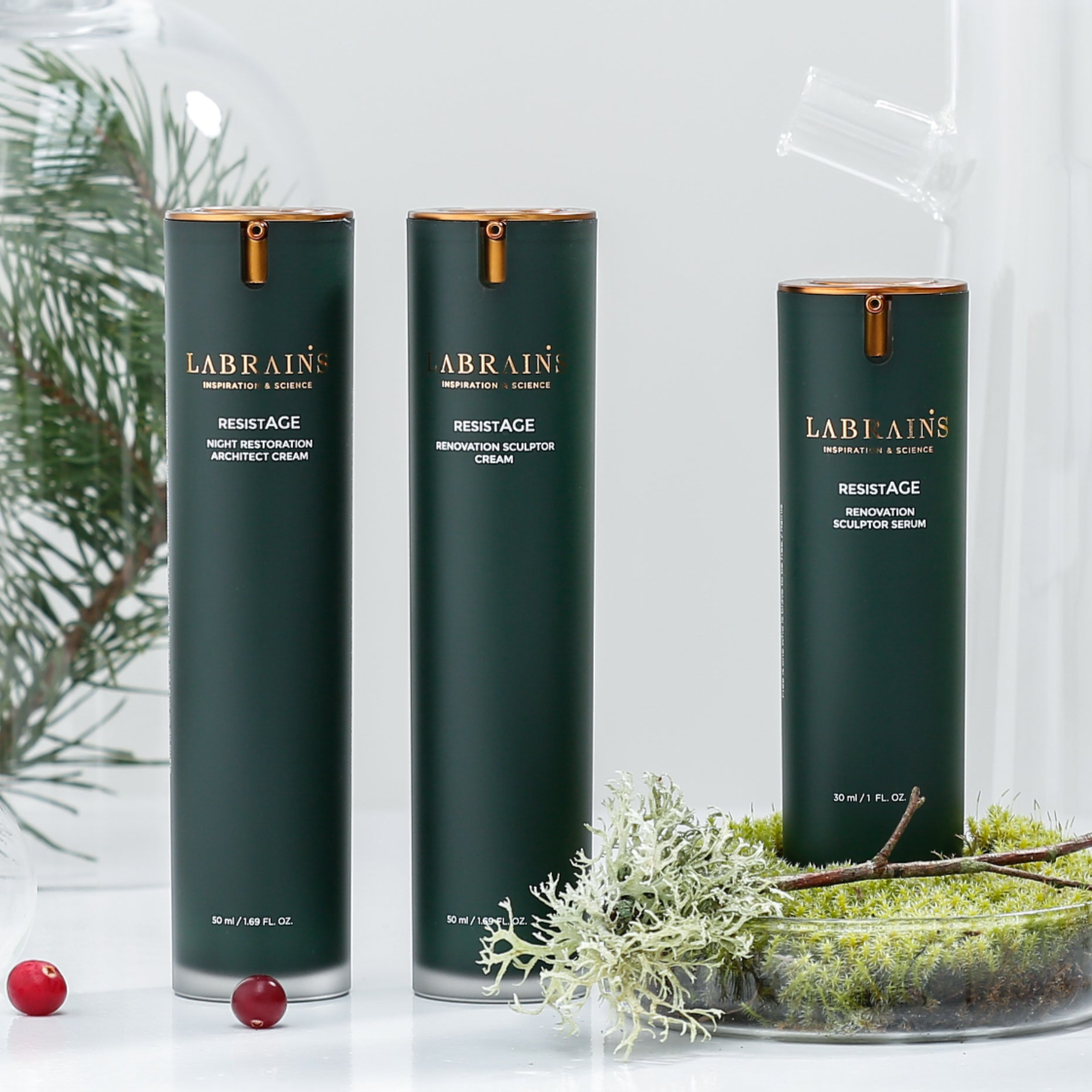
We design skincare like a training program - to coach your skin back to strength and balance. There is no universal routine for sensitive skin, but there is a universal truth: Skincare must adapt to your environment, genetics, and lifestyle.
And in today’s urban world that means:
- Reinforcing the skin barrier,
- Neutralizing inflammation before it escalates,
- Supporting the microbiome,
- And restoring skin’s natural intelligence.
With the right care and science-backed support, even sensitive skin can become strong, radiant, and resilient again.
SENSITIVITY IS NOT A WEAKNESS - IT’S A SIGNAL
Your skin isn’t overreacting - it’s communicating. When we listen, support, and respond with care, we don’t just soothe sensitivity, we build lasting beauty and health.
And that is what LABRAINS is here for. Choose wisely. Choose LABRAINS.
OUR BEST SKIN CARE PRODUCTS FOR


